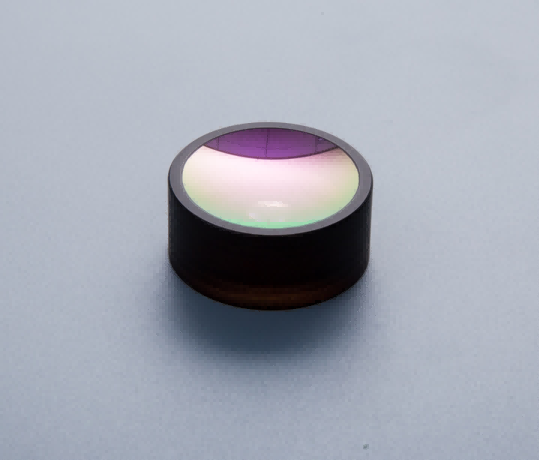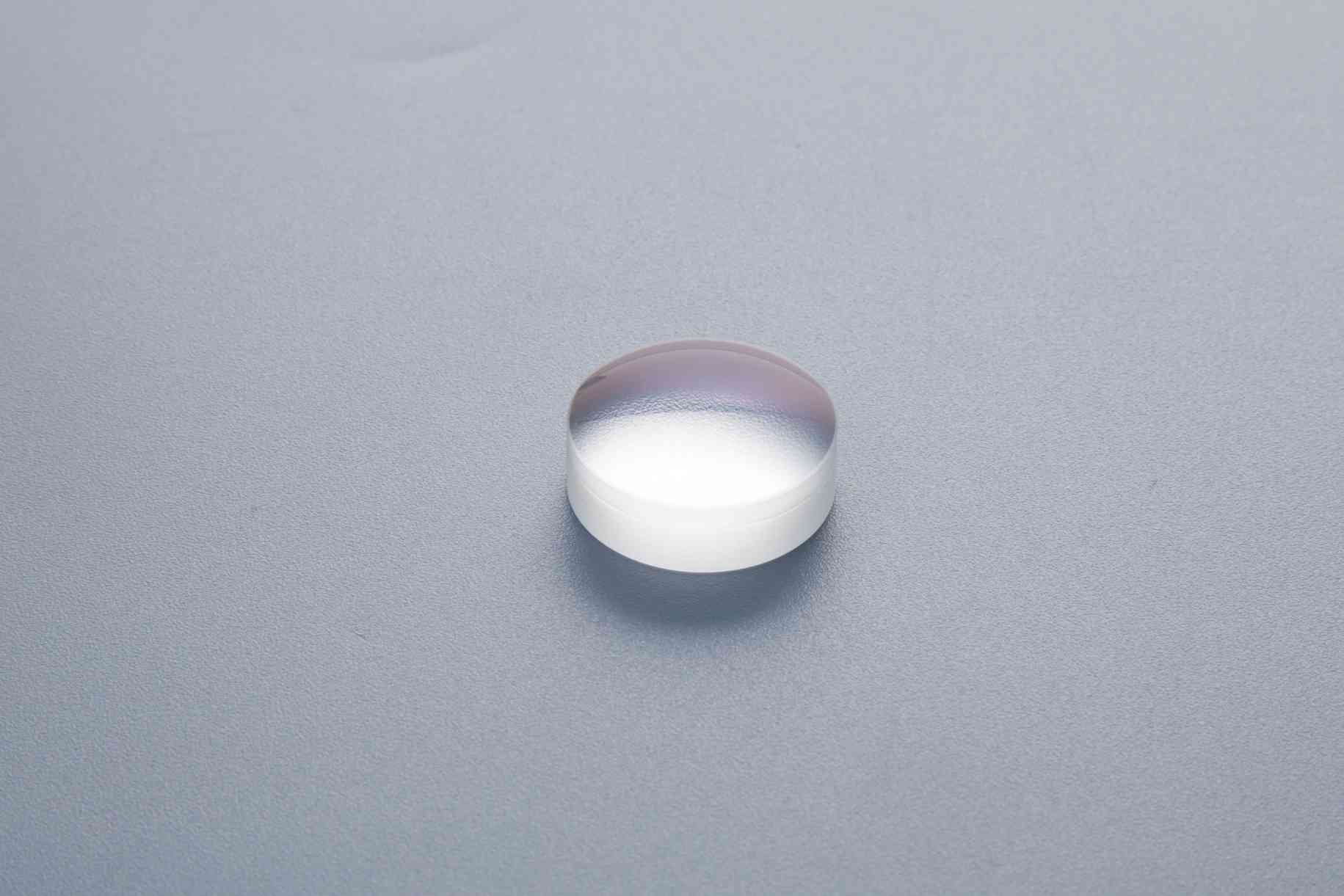LASER COMPONENTS stands as a global leader in the production of Gaussian mirrors, a unique capability that sets us apart.
Gaussian mirrors, also known as Graded Reflectivity Mirrors (GRMs), play a crucial role in achieving high beam intensity with excellent beam quality. Their reflectivity decreases in a Gaussian manner from the centre of the optic outwards. Instead of a convex coupler with uniform reflection, a GRM with a Gaussian reflection profile on the resonator side can be employed. This reflects primarily the central part of the beam, amplifying the central mode in the laser crystal. The result is a powerful laser beam with minimal divergence and exceptional far-field behaviour. Eyepiece Graticules

This feature is particularly useful in applications involving frequency doubling to generate a desired wavelength. For instance, in laser material processing in the medical field or in LiDAR systems for atmospheric condition measurements, Gaussian mirrors serve as effective output couplers.
In terms of applications, GRMs are always used in conjunction with monochromatic light. LASER COMPONENTS routinely manufactures Gaussian mirrors for a wavelength of 1064nm and diameters ranging from 8mm to 25.4 mm. Customisations for different wavelengths and diameters are also available.
Ensuring a consistent reflection profile across various batches is the primary challenge in reproducible manufacturing. Rigorous quality control is crucial for these optics, surpassing conventional mirrors and lenses. In addition to standard quality checks, the unique reflective profile is thoroughly examined.
To meet this challenge, LASER COMPONENTS' development department has established an automated measurement station. Each Gaussian optic undergoes scrutiny, as a continuous wave laser scans the mirror along its diameter, documenting reflection values across the entire width. Only mirrors meeting all customer specifications in every criterion are dispatched.
Our customers can trust that each batch is consistent, and they have the means to verify this independently, because the real measurement curve accompanies every manufactured Gaussian optic, providing customers with tangible evidence of the mirror's performance.
Client Testimonial: A recent customer who switched to our Gaussian mirrors after testing them shared, "We have very encouraging results - the [substrate] shape is not yet what we need, but the LiDT seems to be good."
Further information Gaussian Mirrors - Coated Laser Optics (lasercomponents.com)
Source: https://www.lasercomponents.com/en/
Do you have a review, update or anything you would like to add to this news story?
The Monarc Pro T System turns any microscope into an optically-coupled microscope, enabling in-situ discovery for photoactive catalyst studies.
Discover the NAN™ Electrophysiology focusing nosepiece microscope by Sutter instruments.
The Total Absolute Measurement System (TAMS) unit allows you to choose the right detector for angular-dependent measurements of optical properties of thin and thick samples.
AZoOptics features a new interview with Rebecca Spiecker of the Karlsruhe Institute of Technology, discussing the development of a new X-ray technique that allows better imaging and analysis of living organisms.
In this interview, AZoOptics speaks with Teledyne Dalsa about the key roles of optics when it comes to Machine Vision Systems.
In this interview conducted at Pittcon 2023 in Philadelphia, Pennsylvania, we spoke to Mustafa Kansiz, Director of Product Management and Marketing at Photothermal Spectroscopy Corp, about O-PTIR, a new and alternative infrared spectroscopy method.
AZoOptics.com - An AZoNetwork Site

Microscope Graticule Owned and operated by AZoNetwork, © 2000-2024